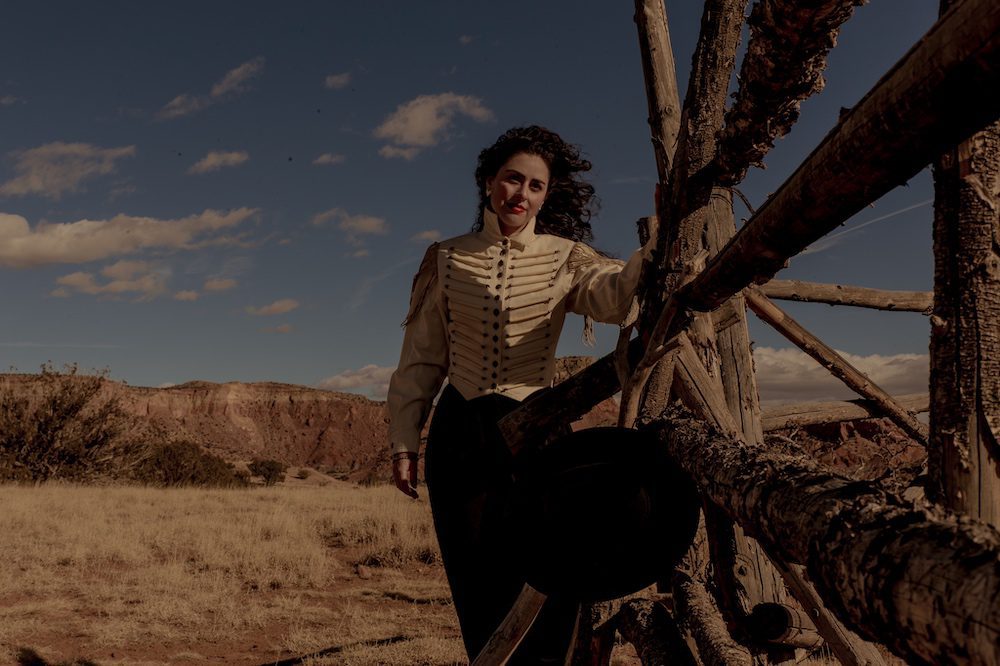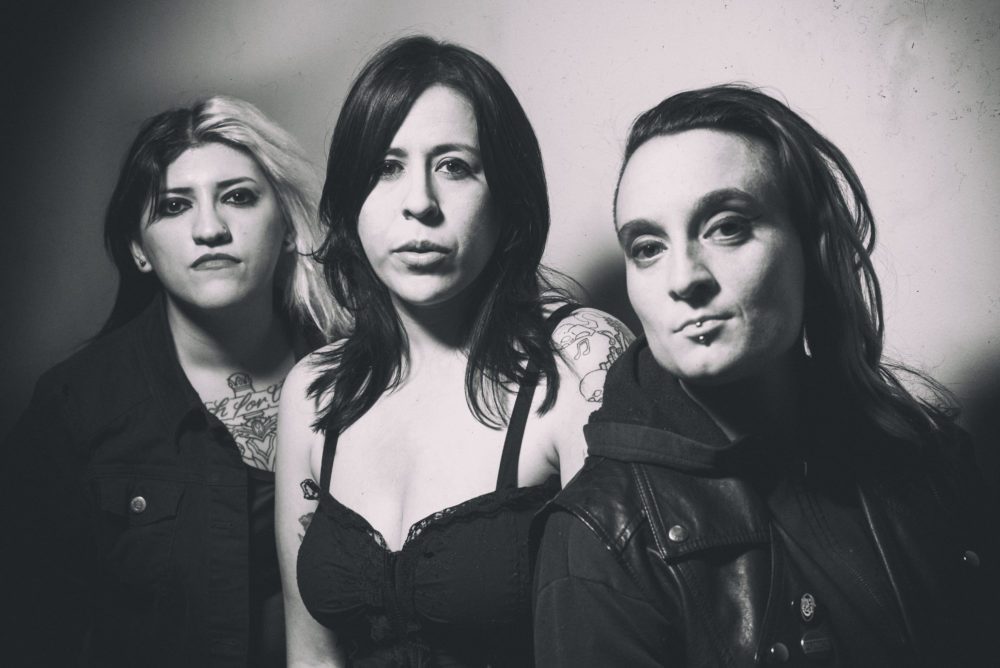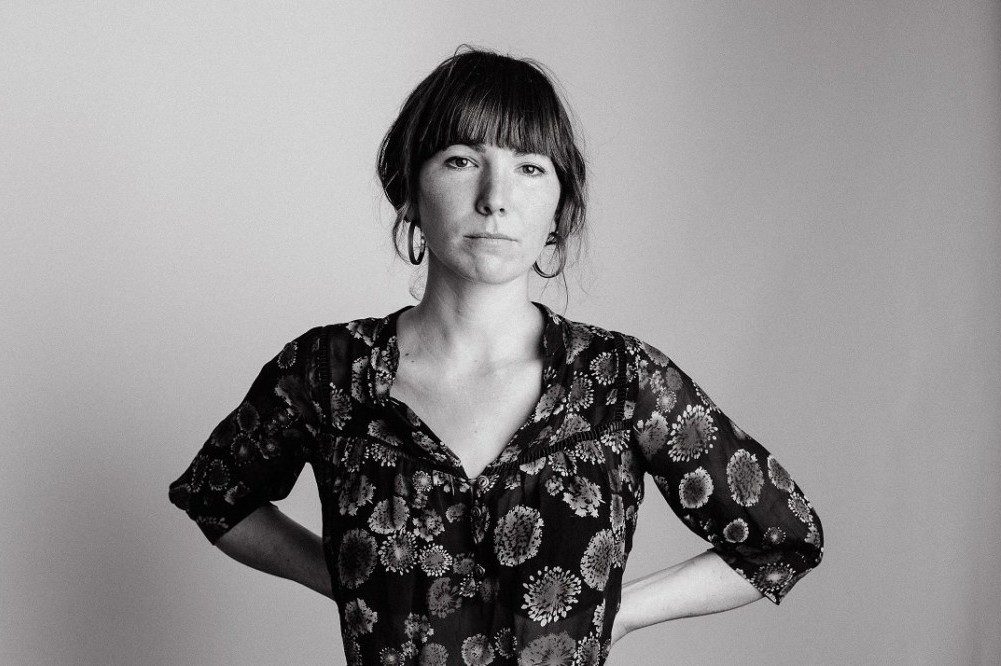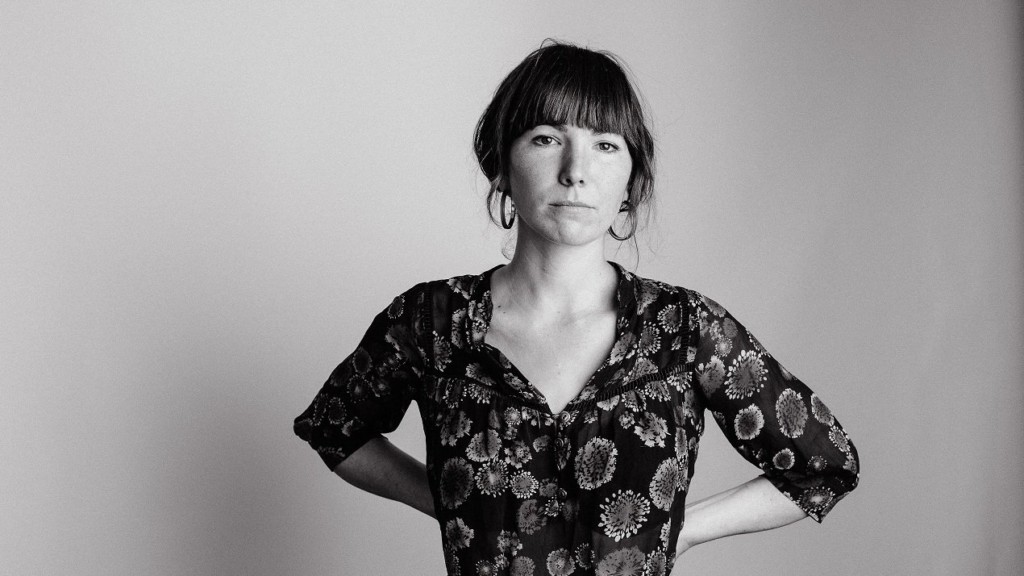PREMIERE: CAMÍNA Melds Trip-Hop and Mexican Tradition on Personal, Political Debut EP


Ariel Saldivar’s musical journey began with training in opera and singing in church choir under the guidance of the Jonas Brothers’ father Kevin Jonas Sr, then touring as a vocalist with Broken Social Scene and The Polyphonic Spree. A few years ago, ready to take the next step in her career, she secluded herself in Santa Fe to develop her solo project, CAMÍNA, which incorporates elements of her earlier life as well as exciting electronic production techniques and odes to her Mexican heritage.
Saldivar views CAMÍNA as not just a stage name but an alter ego of sorts. “I have an ability to channel a different part of myself when I sing and when I perform, and that’s kind of how I see CAMÍNA,” she explains. “Just a strong female voice that can speak for people who don’t have a voice or don’t have a platform to speak.” Her debut EP, Te Quiero Mucho, sung in both English and Spanish, accomplishes this by bringing attention to the plight of oppressed people, particularly immigrants.
The single “Cinnamon,” written in response to reports of mistreatment of asylum-seekers at the U.S.-Mexico border, conveys a message of strength with samples of African-American spirituals like “Nobody Knows the Trouble I’ve Seen.” The song is about “the resilience of people throughout human history [and how] people get back on their feet and rise again,” Saldivar says.
She used a wooden marimba — a xylophone-like percussion instrument — with metal cones to create a haunting chime-like sound that carries the mesmerizing trip-hop track through from beginning to end. She also found a children’s toy from the ’80s at John Congleton’s Elmwood Recording studio in Dallas, Texas – where she tracked the EP – that created a megaphone-like sound, which she thought was appropriate because it evoked the ethos of a protest. The video features archival footage of ’50s and ’60s immigration protests, as well as clips of Saldivar lying in a bed in the Santa Fe house where she wrote the record — an aesthetic inspired by the Ingmar Bergman film Persona.
Bringing another perspective to the same theme, “Maleguena” is a synthy twist on an old Spanish folk ballad about laboring away in the sun as an immigrant. “It’s about appreciating one another and appreciating the work that goes into farming and picking up the crops,” she explains. Since her mother’s family worked on a farm, picking cotton on someone else’s land until they earned enough money to get their own, she wanted to challenge the narrative about immigrants doing work nobody wants to do. “Farming is beautiful work — it can be in certain environments — and that’s kind of the Mexican-American dream, coming to the U.S. and being able to afford that life for yourself and working your own land to feed your family,” she says.
One of her biggest goals with the EP was to deliver a socially relevant message. “It’s a responsibility — I thought, I’m not just going to write this record for me,” she explains. “I wanted it to have a social impact. I wanted to speak from my heart and my mind about the current climate.”
The EP also explores love and loss on a more personal level; it was largely inspired by the cancer diagnosis and death of Saldivar’s dog while she was writing it. “Watching someone you love who is very dear to you passing away is an element that played into the writing of the songs,” she explains. “The title is an endearing term in Spanish, and it was something I’d say to my dog every day while she was going through chemo. It’s just a comforting phrase, probably more so for me than it was for her.”
In the slow ballad “Forever and Always,” Saldivar sings passionately against organs about a longing for a past love that could apply equally to an ex or a deceased pet: “I’ll never forget you/I’ll carry you in my heart always/Believe me when I say/I’ll miss you forever and always.”
Another goal of Saldivar’s was to branch out from her indie rock background and incorporate electronic techniques as well as traditional Mexican music. She was particularly inspired by vinyl records that her grandfather would listen to. The song “Se Puede,” for instance, samples from a ’40s Bolero record by the group Los Embajadores. The trio sings in fifths rather than thirds, creating dissonance in the harmony, which is characteristic of the genre. Saldivar appreciated the sense of sadness this produced in the song, which is about mourning a love that might have been. For her, the lyrics also serve as a nod to the Cesar Chavez rallying cry “Si Se Puede,” or “it can be,” which was used to advocate for migrant farm workers’ rights.
Saldivar is currently working on her second EP and is about to play her first in-person show since before quarantine. At Dallas’s Wild Detectives, the audience will sit at spaced-apart picnic tables with plastic screens down the middle of them, and she’ll have to bring her own microphone.
“It’ll be really interesting to see what happens in live music in the coming years and how musicians are going to be creative and use forms other than live-streaming,” she says. “I’m looking forward to seeing the creativity that comes out from having different little shows and things. I’m cautiously optimistic about the future in terms of making music and putting it out, what that means and the definitions around it now. But I am a proponent of supporting small and live venues, and it’s important we’re lobbying as musicians that we come together and try to save those things.”
Pre-order Te Quiero Mucho here and follow CAMÍNA on Facebook and Instagram for ongoing updates.





